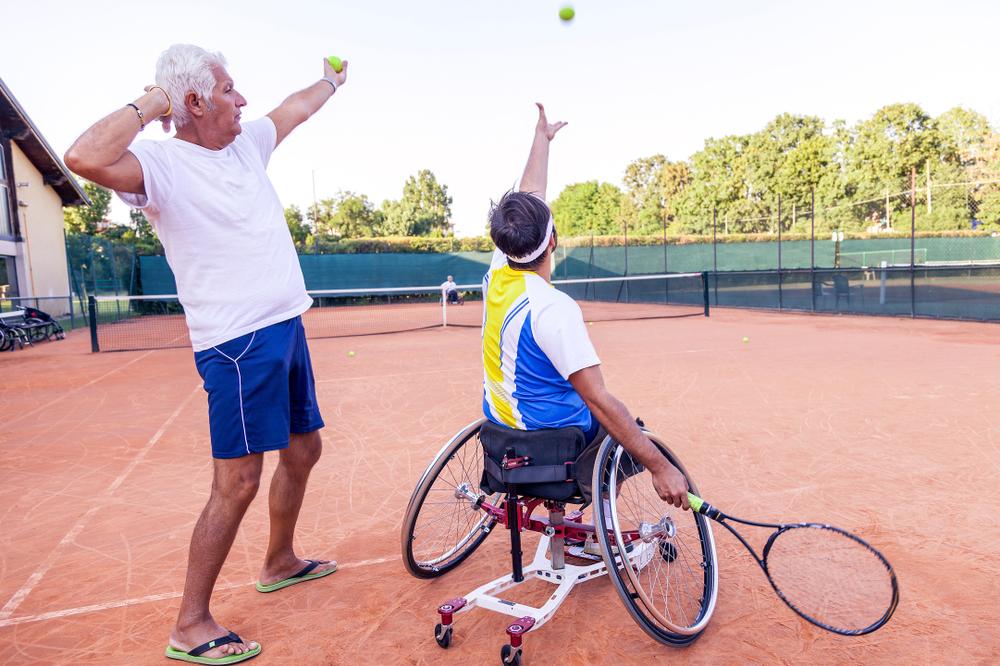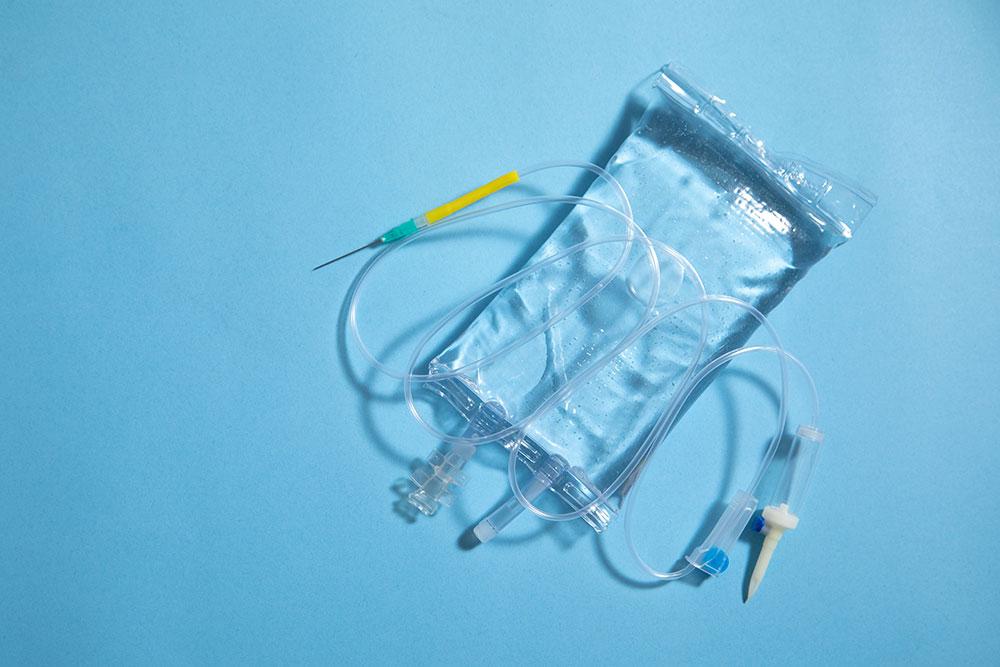 The use of illegal performance enhancing substances (PEDs) by school-age athletes is on the rise, leading researchers to investigate how kids develop positive or negative attitudes about doping. While many media pundits place blame at the feet of elite and pro athletes who engage in doping behaviors, research indicates parents, coaches, peers, and personal motivations play more substantial roles. Even more troubling, recent research suggests parents may inadvertently encourage positive attitudes toward doping even when they are personally against PEDs.
The use of illegal performance enhancing substances (PEDs) by school-age athletes is on the rise, leading researchers to investigate how kids develop positive or negative attitudes about doping. While many media pundits place blame at the feet of elite and pro athletes who engage in doping behaviors, research indicates parents, coaches, peers, and personal motivations play more substantial roles. Even more troubling, recent research suggests parents may inadvertently encourage positive attitudes toward doping even when they are personally against PEDs.
How Kids Learn to Accept Doping
Research has identified a wide range of factors that influence how young athletes form their views on doping.
Causes of Success
An adolescent’s beliefs about the causes of success in sport influence their intentions to dope. Athletes who believe success or failure in sport is due to external factors (equipment, resources, etc.) are more likely to consider doping as an option. Particularly, a 2014 study by Barkoukis indicates a belief that deception (cheating or doping) is an accepted component of achieving success (e.g. “nobody wins without it”), or was already a factor in achieving success (e.g. “everybody else already does it”) is a good predictor of an athlete’s intent to use PEDs.
In contrast, athletes who believe effort and mastery of skills are the causes of success in sport are more likely to have negative views on cheating and doping.
Internal/External Locus of Control
A person’s locus of control is the degree to which that person believes he or she has control over the events and factors that determine outcomes in life. Kids with a high internal locus of control have a strong belief they can make decisions that shape the results they achieve. These kids are more likely to view effort and mastery as the causes for success in sport, and they have a greater ability to resist pressure to cheat.
Kids with a high external locus of control believe they don’t have the ability to make decisions and affect outcomes. When they don’t believe they have control over what happens to them, they also tend not to believe athletes in sport succeed because of effort and mastery, and hence are more likely to view deception and cheating as a likely and acceptable path to success.
Moral Disengagement
We have all seen people – perhaps our own kids – do something totally contrary to moral standards and find a way to justify the behavior. Psychologists refer to this behavior as moral disengagement.
A 2008 study by Lucidi includes a helpful list of justifications people use, saying, “One’s detrimental conduct can be evaluated as acceptable because:
- It serves socially worthy or moral purposes (moral justification).
- It is minimized or distorted by means of language (euphemism and convoluted language).
- It is compared with more flagrant inhumanities (exonerative comparison).
- It is removed from personal responsibility (displacement and diffusion of responsibility).
- Its social effects are misconstrued by ignoring, minimizing, and distorting the conduct’s harmful consequences (misrepresenting the harm).
- The responsibility of it is assigned to others or the victims (ascription of the blame).
- It strips the victim of any human quality (dehumanization).”
In Lucidi’s study, 762 Italian adolescents took assessment questionnaires related to their views on doping and then took behavior questionnaires 3 months later. The results aligned with international research showing PED use by adolescents is rare, but consistent at about 2% of adolescents (14% of adolescents used supplements during the same period, which was also consistent with other studies). The assessment questionnaires included questions asking how participants would act in hypothetical moral dilemmas, and how and whether they would justify decisions that broke the rules. They found adolescents who expressed greater moral disengagement – like adolescents who agreed with the statement “In comparison to the damaging effects of alcohol and tobacco, the use of illicit substances is not so bad.” – were more likely to be in the 2% who ended up taking PEDs.
How Parental Behavior Encourages Doping
Parents have a lot of influence over the factors that influence kids’ views on doping, and consequently, how likely they are to take PEDs. What’s important to note is that it’s not just your direct views on PEDs that matter. You may be vehemently against performance enhancing drugs, but inadvertently encouraging their use through your other interactions with your kids. Here’s how.
Pressure to Be Perfect
A 2015 study by Madigan examined the effect of perfectionism on attitudes toward doping in junior athletes, and found that of four aspects of perfectionism in sport – perfectionistic strivings (own desire to strive for perfection), perfectionistic concerns (own desire to avoid mistakes), parental pressure to be perfect, and coach pressure to be perfect – only parental pressure had a direct positive effect on junior athletes’ attitudes toward doping.
In contrast, perfectionistic strivings and coach pressure to be perfect had negative effects on athletes’ attitudes toward doping. The latter may seem strange, but the study found that coach pressure increased athletes’ own desire to perform at their best (increased perfectionistic strivings), and that increased perfectionistic strivings led athletes to have a more negative attitude toward doping.
What does this mean for parents? Try to encourage young athletes to want to improve performance for their own benefit (mastery of skills). Praise effort and progress, rather than putting pressure on kids to be perfect in your eyes. To prevent kids from feeling excessive pressure to avoid mistakes, or that you’ll be disappointed in them for making mistakes, praise effort and reframe mistakes as opportunities for growth and learning.
Moral Disengagement
Your moral compass plays a large role in establishing your child’s moral compass. The more parents find ways to justify moral disengagement, the more our children learn to justify breaking the rules. Even if you are against performance enhancing drugs, your willingness to disregard moral standards in other areas (praising elite athletes caught for PED use, cheating on taxes, breaking traffic laws, committing insurance fraud, etc.) can inadvertently lead your children to have more positive attitudes toward taking PEDs.
In the Lucidi study, kids who expressed greater moral disengagement had more positive attitudes toward doping, felt their families would be more approving of them using doping products, and were more likely to be in the 2% of participants who took PEDs during the 3-months after the assessment questionnaire.
Helicopter Parenting
Kids who believe they can control the decisions that affect their lives are less likely to have positive attitudes about doping and are more likely to resist external pressures to cheat. This means your child may be less likely to take PEDs if they believe they have ownership over, or at least genuine influence in, the choices that affect their lives.
When you fail to include your kids in decision making around activities and goals, you diminish their belief they can make decisions for themselves, and that makes them more likely to let someone else convince them to take performance enhancing drugs (or make other negative choices).
It’s tempting to believe only sports-obsessed hockey dads, soccer moms, or football families could be encouraging young athletes to take PEDs. The reality is there are more subtle ways parents may inadvertently encourage doping by the pressures we place on kids, our own justifications for breaking rules outside of sport, and our tendencies to make decisions for our kids rather than including them in those decisions.
References:
Vassilis Barkoukis, Lambros Lazuras & Haralambos Tsorbatzoudis (2014) Beliefs about the causes of success in sports and susceptibility for doping use in adolescent athletes, Journal of Sports Sciences, 32:3, 212-219, DOI: 10.1080/02640414.2013.819521
Fabio Lucidi , Arnaldo Zelli , Luca Mallia , Caterina Grano , Paolo M. Russo & Cristiano Violani (2008) The social-cognitive mechanisms regulating adolescents’ use of doping substances, Journal of Sports Sciences, 26:5, 447-456, DOI: 10.1080/02640410701579370
Daniel J. Madigan, Joachim Stoeber & Louis Passfield (2015): Perfectionism and attitudes towards doping in junior athletes, Journal of Sports Sciences, DOI: 10.1080/02640414.2015.1068441



